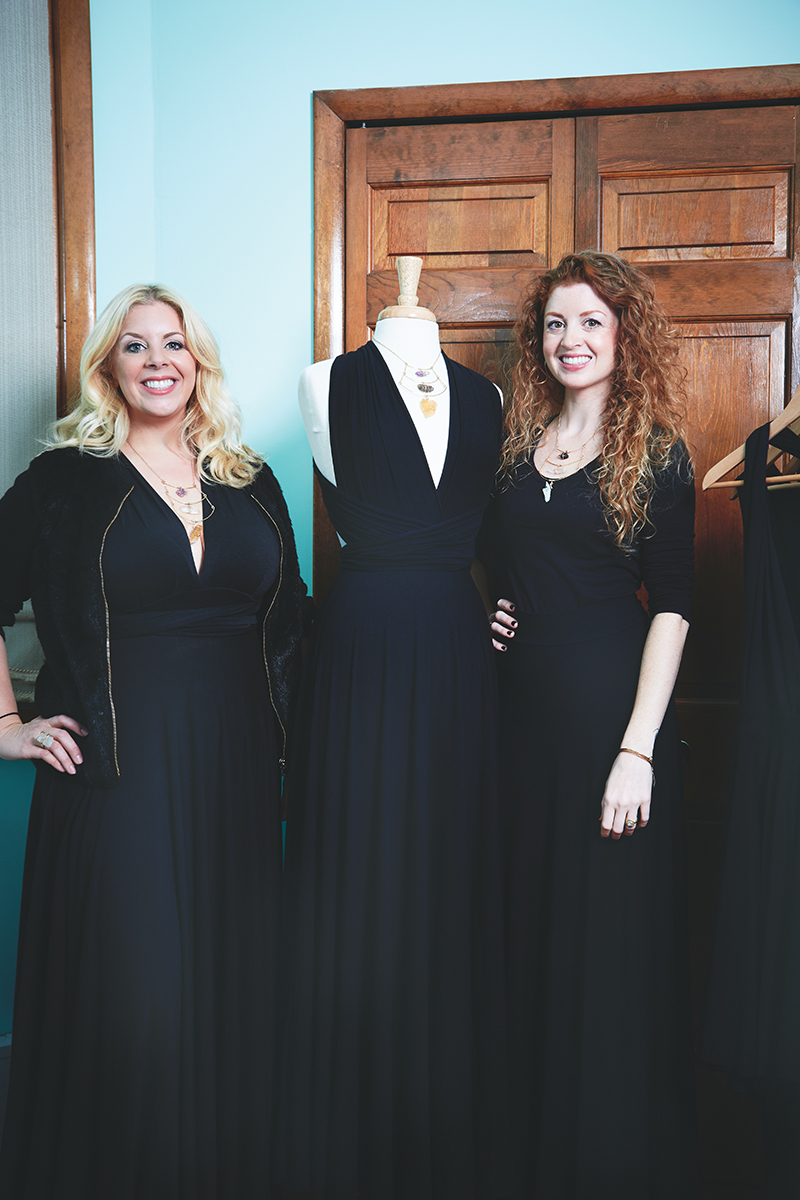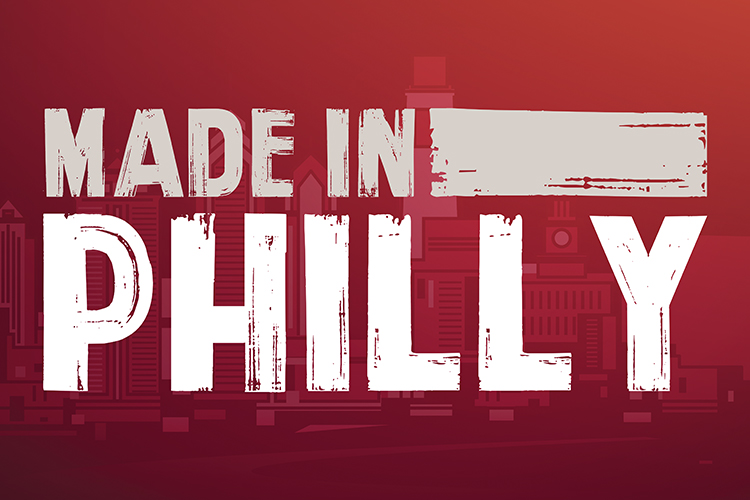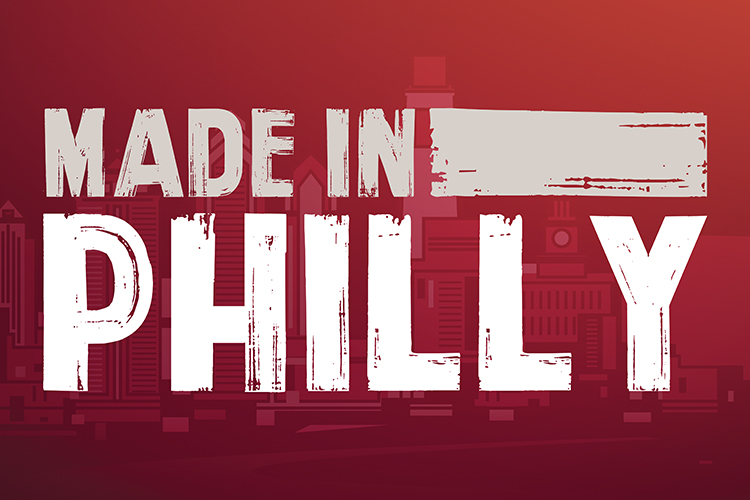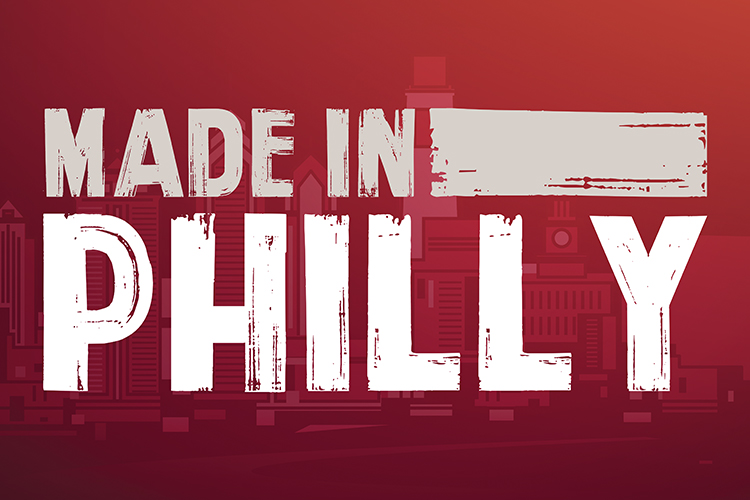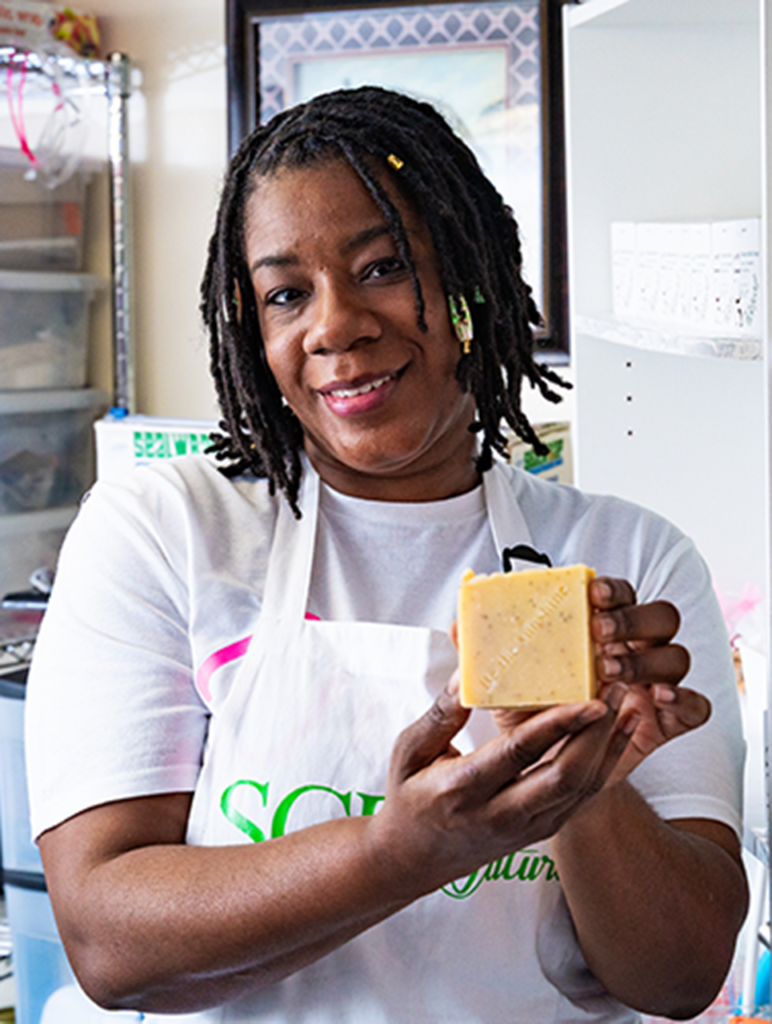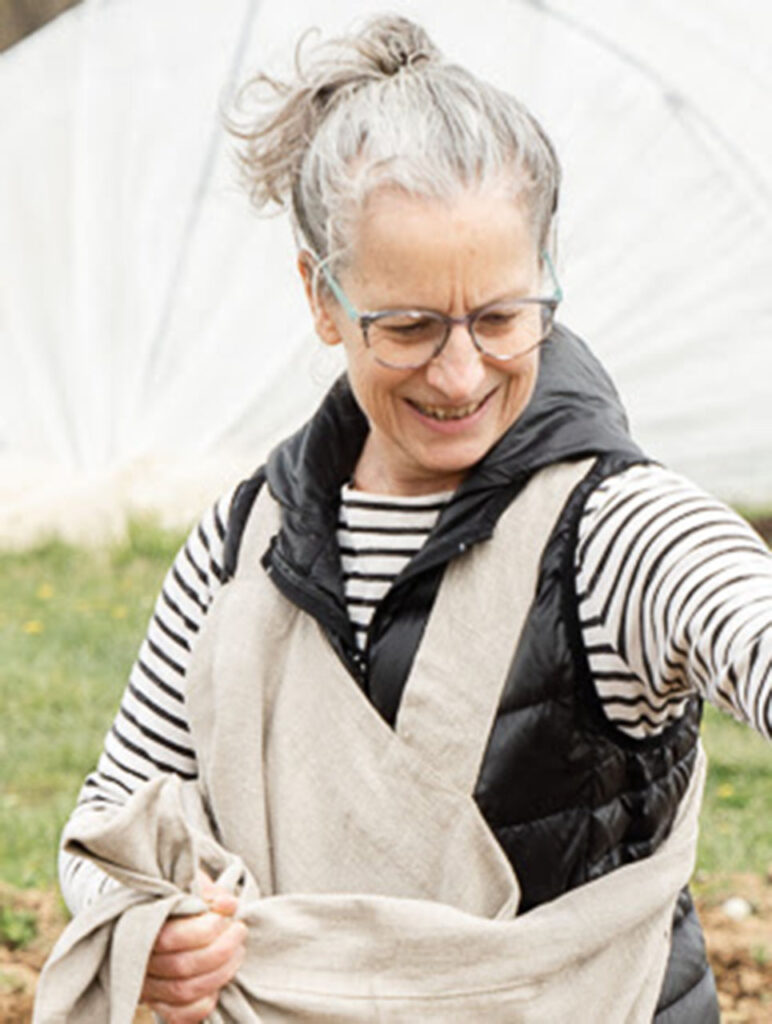Photo by Mark Likosky
The Right Fit
by William Beisley
On a beech-lined street in South Philly’s Girard Estate sits the bungalow-style home and workspace of Kristy Carabello, 37, co-owner of Orgotton. It’s here that she and her sister, Stef Emery, 32, design the organic cotton cardigans, dresses, skirts and shirts that make up their sustainable clothing collection.
Orgotton began in 2009 when the sisters offered to make shirts for a friend’s band. They started by painting each one by hand in the basement of their family’s home in Bucks County. Hand-painting was a time- consuming process that soon motivated them to learn how to screenprint.
“We ruined the basement floor,” Emery laughs, recalling their father’s reaction to the influx of ink stains and printing tools. When they both moved to Philadelphia later that year, they realized they wanted to begin developing a full product line.
Orgotton’s clothing has a minimal aesthetic, one that blends the comfort of yoga wear with the subtle, flared eccentricity of ’70s fashion. Products like their infinity dress and 100 percent organic cotton cardigan are purposefully designed with a versatility that allows for a different wear-style each time it’s put on. It’s slow fashion that blends the principles of utility with chic simplicity.
“We believe that it’s important to create things that last and are multifunctional,” Carabello says. Before they began creating anything, they knew what kind of materials they would work with.
Emery, a private music teacher and former employee of Kensington’s Greensgrow Farm and Newtown’s Anchor Run Farm, says, “From the start of Orgotton, we knew it had to be organic fabrics. We are aware of how conventional farms operate, with pesticides ruining groundwater and affecting not only the farm workers, but the neighboring communities as well.”
The use of pesticides can endanger local wildlife and drastically deplete the fertility of farmlands. Cotton takes up 2.5 percent of the world’s agricultural land, and consumes 16 percent of the insecticides used worldwide for food and fiber production. Due to these standard practices, conventional cotton is considered one of the “dirtiest” crops.
The sisters use a Texas-grown organic cotton manufactured in Asheville, N.C., by Spiritex. It meets the Global Organic Textile Standards (GOTS) to ensure it’s grown and processed to high-level environmental and social standards. GOTS also requires cotton producers vying for organic certification to establish wastewater treatment plants to purify the water they use for production.
For products like their jumpsuit or maxi skirt, they blend the cotton with spandex made from recycled polyethylene terephthalate (PET) bottles and bamboo from a Canadian provider whose operational practices limit the toxins released during manufacturing.
“We all know that organic-made can sometimes be more costly,” Carabello says. “[But] I’m very interested in finding out why consumers are more likely to spend their money to buy organic foods, as opposed to organic clothing. Cotton is said to be the most highly [pesticide]-sprayed crop, so why are people okay with putting pesticides on their bodies if they won’t put them in their bodies?”
The sisters and partners hope that their fashion line will inspire buyers to thin their closet by purchasing clothing that is adaptable to any occasion. They also hope to inspire your garden.
“We want people to grow their sustainable [clothing] collection with us,” says Carabello, “which is why our hang tags are made from seeded paper. When you plant them, wildflowers grow!”
Orgotton employs local collaborators to help them actualize their ideas. Steve Levin of CSH, Inc., in Port Richmond, manufactured the first run of their line. They’ve also worked with Heidi Noon, a local designer and fashion consultant who assisted in producing patterns based off of the sisters’ designs. Through Noon, the pair met Bela Shehu, stylist and owner of NINObrand, located in Rittenhouse. Shehu has helped with the production runs of the most recent patterns by cutting fabric at her atelier in Rittenhouse and providing the aid of her seamstresses in North and West Philly, as well as one located in New Hope.
In addition to their current 12-piece clothing line, Emery has begun to handcraft jewelry and accessories for Orgotton under the name Staylow. Her newest wares are made by hand-hammering metal and hand-wrapping local gemstones and beads from providers such as Beadworks in South Philly. The sisters even incorporate the leftover cotton into their accessories.
“I work in the cosmetic industry and I was appalled by all of the waste,” Carabello says. “It’s the same in the fashion industry. If there’s anything that you can do, little by little, you have to at least try.”
Orgotton clothing can be found at Toile, in Fishtown, and Volta Market, in South Philadelphia. Their products can also be purchased from orgotton.com and from fashionflairbazaar.com.


